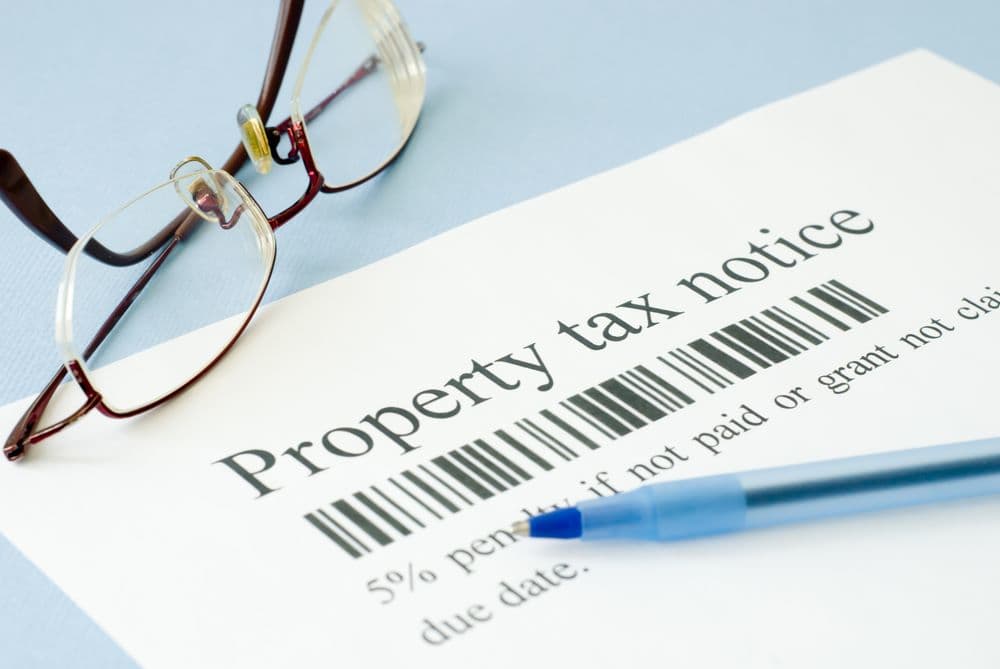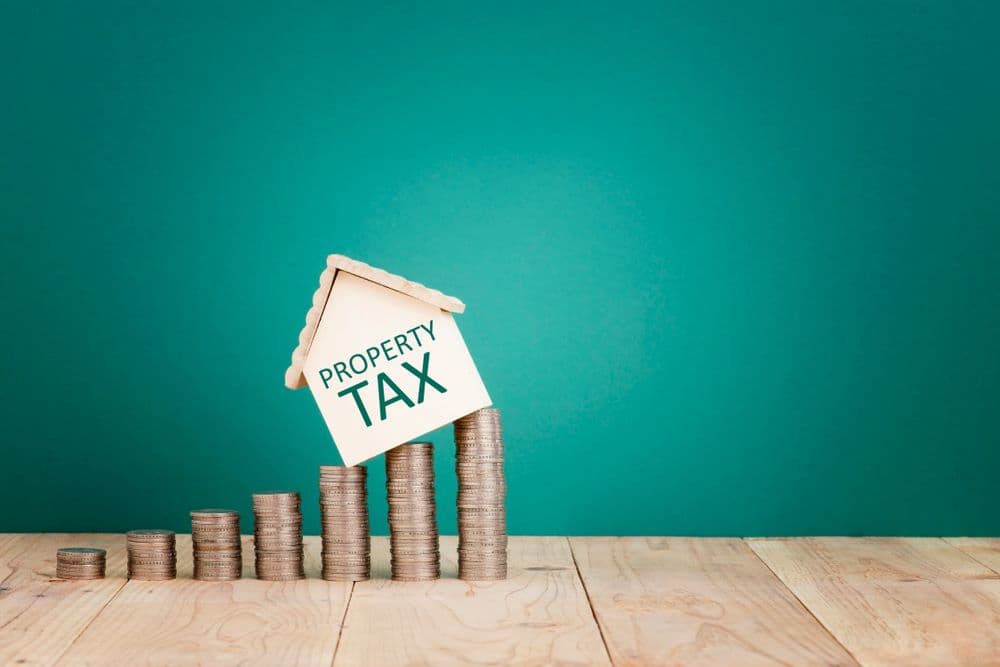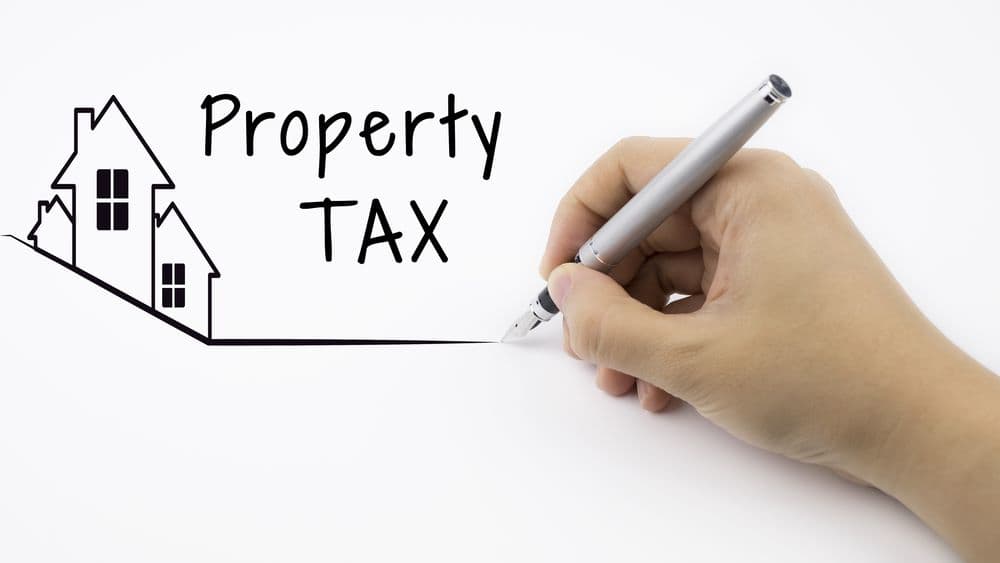How Are Property Taxes Calculated in California?
The tax year for the State of California runs from July 1 to June 30. Each county will assess and collect the property taxes that are owed to the state.
Property tax collection, typically split into two equal installments with the first payment covering tax liability from July 1 through December 31. The debt becomes due on November 1 of each year. If not paid by December 10 the tax bill will be considered delinquent. The second installment, covering tax liability from January 1 through June 30, becomes due on March 1 and if not paid in full by April 10 it will become delinquent. Payment must be received by the tax office no later than 5 p.m. on the delinquency date (December 10 and April 10).

The tax liability is a percentage of the assessed property value. In the first full fiscal year of property ownership, the standard tax liability is one percent of the properties assessed value. The assessed value is usually the sale price of the home.
Every year, the property’s value may see an adjustment of a maximum increase of two percent. The county assessor can make this annual adjustment to account for inflation. The tax increase is limited by Proposition 13.
In addition to the standard property tax, there may be an additional tax imposed to cover additional costs. This tax referred to as a Mello-Roos Tax, purchases bonds, providing funding for local community fiscal responsibilities. The Mello-Roos tax can amount to .25 up to .50 percent of additional tax added to the tax bill.
California Proposition 13
In California, the property tax rates are established by the state legislature or a combination of state and local legislative bodies.
While California voters can make laws through propositions voted by registered voters, Proposition 13 was one suck proposition that went into effect on June 6, 1978. It reduced the property tax rate from the current three to a new one percent. Additionally, Proposition 13 permitted an increase for inflation, allowing an annual increase of 2% to the property value.
Reassessments for Improvements
Every year the county board of assessors will evaluate and complete reassessments on each property. Usually, the value of the property will increase by the 2 percent allowed by proposition 13. Then tax obligation will be 1% of the new assessment value. But, if you made any significant improvements or completed renovations on the property that required permitting, the assessor will factor the property value increase into the new assessment. Depending on when There can be different tax values for one year, depending on when the construction was completed. For example, you complete improvement with three months remaining in the tax year. The first nine months will be taxed at the original assessed value and the remaining three months will be taxed at the new reassessed value.
California Supplemental Property Tax
After the closing of escrow, new homeowners can expect a supplemental tax bill. The additional tax bill covers the difference in property taxes based on the new assessed value. The new assessed value will be the sale price of the home. The amount of the supplemental tax bill will be prorated for the remaining months of the current fiscal year.

For example, the assessed value of the property when the seller owned the property was $250,000. The home had a purchase price of $375,000. The new assessed property value is $375,000. The difference between the old and the new assessment is $125,000. If the tax rate is 1.10%, then you would owe $1,375 of taxes. But since the tax is prorated on the remaining days in the fiscal year. If you close on March 15, there 108 days remaining in the fiscal year and you should expect to get a supplemental tax bill of $406.85.
If the property reassessment results in a lower value, the new homeowner will receive a refund from the taxes overpaid. Refunds were fairly common after the housing market crash in 2008. For several years following the crash, homes were reassessed at lower values and taxes were reduced.
California Property Tax Calculator
California’s property taxes are below the national average. After exemptions, the average California effective property tax rate is 0.79%, with a national average of 1.19%.
There is a free online Property Tax Calculator that makes estimating a buyer’s new tax pretty simple. Getting an estimate on your tax liability is as simple as entering the property’s zip code and estimated assessed home value. The calculator will give you the “Average Tax Rate Percentage” and the annual “Property Tax.”
California Property Tax Exemptions
Homeowners Exemption
A principal place of residence is eligible for a homeowners exemption as provided in California’s Constitution. The homeowners’ exemption will reduce the assessed value of the home by $7,000, thus reducing the tax liability by up to $70. The application for the Homeowner’s Exemption needs to be made at the County Tax Assessor.
Tax Benefits for Senior Citizens
California Proposition 60 and California Proposition 90 allow qualifying homeowners age 55 and older an exception to avoid increases of their property taxes during the purchase of new homes.
These laws allow seniors to keep their current property tax obligations at the same level when buying a new home. But the new home must be equal or of lesser value than the first property sold.
Proposition 60 is a statewide law and allows this exception for homes bought and sold within the same county.
Proposition 90 allows the same protection from tax increase when the new home is purchased in a different county. But this can only occur if the county authorizes such a transfer of tax obligation. Currently, only ten counties are opting in to Proposition 90; they are:
- Alameda
- Riverside
- San Mateo
- Ventura
- Los Angeles
- San Bernardino
- Santa Clara
- Orange
- San Diego
- Tuolumne
Exceptions For California Family Members
Proposition 58 and Proposition 193 are two propositions granting reassessment exceptions when property transfers between qualified family members. These exempts will allow for the home to transfer without a reassessment. Thus, keeping the tax liability the same.
Proposition 58 grants an exemption for reassessment when a property transfers ownership between a parent and child
Proposition 193 permits the transfer to occur between grandparent and a grandchild.
Average California Property Tax Rates
The typical California property tax rate varies between 1.1 percent to 1.6 percent of the property’s assessed value.
How Property Taxes are Calculated in California
Riverside County
The Riverside County Tax Collector website provides an online payment system, making it much easier to make your property tax payment.
By inputting the property address, unsecured bill number or parcel number, property owners can locate their tax bill. Once found, you can select the bill and make payment.
San Bernardino County
The San Bernardino County Assessor website provides a ton of useful information covering California property taxes. Their website offers a payment portal to pay your San Bernadino property taxes. You look up the property by entering the property address, property ID, or parcel number to locate the property.
Conclusion
While California has one of the lowest tax rates(one percent)in the country because of proposition 13, the actual tax liability can be substantial. The property values in California are some of the highest in the country. Unlike many states, California reassesses the property value annually. During this reassessment, the property value will likely see an increase by the two percent maximum. Also, an increase in value resulting from any significant improvements completed in the past year will affect the reassessment.
In addition to the property tax imposed by the state, a new homebuyer will need to consider the additional cost of any HOA fees and Mello-Roos taxes that may apply to the property.


